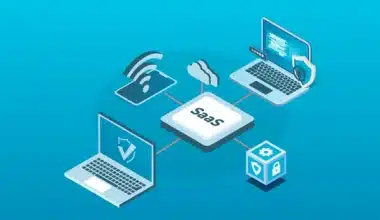The market for developing mobile apps is undergoing a transformation. You will be able to execute mobile applications on several platforms thanks to advancements in microprocessing technology. For instance, mobile apps developed today will function flawlessly on PCs in the future. Additionally, mobile apps created with Flutter or React Native will run on PCs, Macs, Android phones, and iPhones. So in this article, define mobile application development and then go over the process, top companies, and all you should know.
What is Mobile Applications Development
Mobile application development of creating software for smartphones, tablets, and digital assistants, typically for the Android and iOS operating systems. A mobile app store, a preinstalled copy of the software, or a mobile web browser can all be used to access it. Java, Swift, C# and HTML5 are some programming and markup languages employed in this form of software development.
The creation of mobile apps is expanding quickly. Organizations across industries must satisfy consumer expectations for real-time, practical ways to complete transactions and obtain information, from retail, telecommunications, and e-commerce to insurance, healthcare, and government. Today, the most common method for individuals and organizations to connect to the internet is through mobile devices—and mobile applications that maximize their usefulness. Organizations must create the mobile applications that their customers, partners, and workers want if they want to remain relevant, responsive, and successful.
Process for Developing Mobile Application
You need a step-by-step procedure to design an application so that you may create mobile apps quickly. Thfollowingxt three actions are crucial. Recognize the obligation. Create the product. Test the item.
Create a Strategy for Application Development
The first stage in developing a mobile app is to formulate a strategy by specifying why?
- What is the goal of your application? What industry issue will your mobile application address? What business model do you employ?
- How much money are you willing to put into developing this app?
- How do you make money?
- How and to whom will you market your app?
- You’ll have a good notion of how to continue with your mobile app developments.
You’ll need to take some of the following actions to develop a successful strategy:
#1. Invent Your App Idea
An app idea is the first step in developing a mobile app. To create the most comprehensive list of features you can provide your consumers, you must conduct a significant amount of inventing. Start with the fundamental components, and as additional, less important but still important, qualities become apparent, make a note of them. Who knows, you might astound yourself with concepts you didn’t think you could put into practice. Ask your staff to brainstorm all of their ideas as you sit down together.
#2. Market Analysis
Here are some queries you can pose to yourself before you begin:
- Who is the audience you want to reach?
- How will your clients use the program?
- Are there any currently existing, better options?
- What will your program accomplish that other programs can’t?
- What type of business model do your clients use?
- Which technologies, languages, and frameworks will you employ?
- What percentage of users pay for your kind of mobile application?
- What is your spending plan?
- How long will the development of your application take?
#3. Establish a Minimum Viable Product
You specify what your minimum viable product will look like once you are certain of all the functionalities you can include and the functionalities your users will want to utilize right away. A minimal viable product is a version of your app with just enough features to show it to your first users and get their input on the features and future development of the app.
#4. Plan and Analyze the Development of Your App
All project development begins with the strategy. Once you have a plan in place, you can start turning your aspirations into attainable objectives. Start the analysis and planning process by outlining exactly how the functions can be used to develop use cases while simultaneously compiling a list of functional requirements.
Platforms for Developing Mobile Applications
The two most significant mobile app platforms are Android from Google and iOS from Apple Inc. The iOS mobile operating system was created exclusively for iPhones by Apple. However, Android is supported by mobile devices made by numerous OEMs, including Google.
Despite the fact that the two have many similarities, they use separate software development kits (SDKs). Apple only utilizes iOS for its own devices, whereas Google has made Android open to other businesses that can meet certain criteria. For both platforms, developers have created more than 1.5 million applications so far.
Alternatives to Creating Mobile Applications
Four methods exist for developing mobile applications:
- Develop native mobile apps.
- Create Native Cross-Platform Mobile Applications
- Create mobile hybrid applications
- Create Progressive Web Apps
Mobile Application Development Service
Here is the list of mobile application services:
#1. Product Research and Idea Generation
Our strategy is focused on creating a solid framework for ideation and discovery inside your larger innovation system. We offer a variety of services, such as market research, business modelling, product scope design, and proposal creation for technology stacks, all of which are intended to help you realize your ideas and achieve core business innovation and
#2. Product Design
Product design Starting with product information architecture, product design requirements, user experience, user interface design, and functional requirements design, they design your product at various stages. And also give you a design that not only looks excellent but also satisfies the needs of your users and supports your company’s goals.
#3. Technology Reconnaissance
To determine which technologies are best suited for your application, we investigate and contrast those currently on the market. A functional breakdown of the chosen solutions, updated development cost projections, a suggested team structure, and a suggested project timetable are all included in these services. The objective is to offer you the best solution and a clear road to success.
#4. Technology Advisory
They support businesses, including startups, in maximizing the value of technology. From the creation of the architecture through its implementation, our consulting services encompass the full process. To fulfil your technology vision, also collaborate directly with you.
#5. PoC and MVP Creation
The company helps you determine the market fit of your product without making significant investments in product development by providing a low-cost, low-risk evaluation of your product ideas through PoC and MVP methodologies.
Mobile Application Company
#1. OpenXcell
Leading mobile app development firm in the USA & India, OpenXcell is renowned for providing creative & compelling mobile app solutions. Thanks to its professional staff of mobile app developers & designers, the company is regarded as one of the top app development companies in the industry.
#2. Utility
Utility specializes in creating unique mobile applications for Android and iOS as well as compelling web solutions. They work closely with Fortune 500 companies, and the business has a staff of skilled software engineers, digital marketers, UX designers, and mobile app developers.
#3. Cubix
Leading software, game, and mobile app development company Cubix works with clients in the US and other countries. With more than 12 years of combined expertise, their teams have developed both Android and iOS apps, making them specialists in creating, adapting, and integrating sophisticated enterprise-level solutions, business information analytic
#4. Geniuses
Geniuses is a software and product development business that prioritizes the success of its customers. It was founded in 2017 and has since completed 150+ noteworthy projects in FinTech, EdTech, Retail, and other industries, accumulating the knowledge of 200+ competent professionals.
#5. Emerline
Emerline serves as a Strategic Technology Partner for several well-established businesses and start-ups with headquarters in the USA and Europe and offers full-cycle software engineering services to businesses throughout the world.
Custom Mobile Application Development
Customizing mobile apps can be a potent tool for assisting your staff, procedures, and overall business. However, creating specialized software that would precisely fulfil their demands is difficult for many businesses.
What Is the Development of Custom Mobile Apps
Here, the name very well speaks for itself. The process of creating apps specifically suited to the requirements of your company is known as custom app development. Such an app is developed to address the demands of a specific audience rather than the needs of the entire population, whether it is fully or partially personalized.
Benefits Of Developing Custom Apps For Businesses
The advantages of custom development over ready-made solutions are as follows:
#1. Improved Security
The security of your data may be threatened by the lack of specific security measures in general business apps. By using data encryption, creating a bespoke app enables you to install particular security measures that are tailored to your company’s needs and get rid of potential threats and hazards. A tailored method also satisfies the demands of various OS and APIs.
#2. Extreme Scalability
Regular apps are often created to handle a specific set of resources. It’s not inherently a negative thing, but as your organization expands, generic apps may struggle to handle heavier data loads. In contrast to conventional apps, this issue can be readily fixed with custom app creation. This is so because such specifications are typically taken into account when creating custom apps. This makes it simple to scale them up if the need arises.
#3. Simpler to Maintain
You get dependent on an unidentified mobile app development team by employing a general app. You will be without continual development if they decide to halt development. Lastly, you have complete control over the creation and upkeep of a customized app and are not at the mercy of anybody else.
#4. Putting The Competitive Advantage in Focus
Competitive advantages are of utmost importance for every firm, especially startups. Off-the-shelf solutions in this situation seldom have any room to grow and add new features. Custom applications can assist you in showcasing your company’s competitive advantages and differentiating your goods on the market.
#5. Great Custom Mobile App Development Advice
We now understand the operational side of developing custom apps. But it’s not just about what it is; it’s also about how it’s done. I advise following these 3 steps to make the most of the bespoke app creation.
Define the Conditions
The requirements for software development are essential to the creation of any product. especially while developing specialized applications. You must be very specific about your criteria to achieve the desired outcome. The primary goals of software documentation are to:
- Explain product functionality
- Collect and organize project-related data
- Clarify all project requirements
- Discuss all concerns and challenges emerging between stakeholders and developers.
Stay Current With Technology
It’s not all about futuristic 3D graphics or VR goggles when it comes to new technologies. Instead, these could be useful tools that streamline or automate your workflow. The following technologies are some you might want to think about:
Cloud Computing
This particular technology is commonly utilized, especially for programs with large datasets. To create cloud-native or service-based applications, cloud environments can support coding, design, testing, and other development activities.
Analytics
Technologies use dashboards dashboard visualizations, and predictive capabilities to assist applications process and organizing incoming personal data.
What is meant by mobile Application Development?
A typical mobile application uses a network connection to interact with remote computing resources. Mobile application development is the process of developing software applications that operate on mobile devices.
What are the five phases of Mobile Application Development?
Strategy. Making a plan for how your company can benefit from a mobile app is the first stage in the process of developing one. Other steps in the process include analysis and planning, UI/UX design, app development, application testing, deployment, and support.
What is Mobile Applications Development Software?
- Kobiton
- HeadSpin’s
- Appy pie.
What is needed for Mobile Application Development?
Objective C, Swift, Java, and other programming languages are just a few examples of the programming languages you should be proficient in. A mobile app developer must be able to design an intuitive user experience and write code that is simple to read and use.
What is Mobile Application Development with Example?
The process of building software for portable, wireless devices like smartphones and other handheld gadgets is known as mobile application development. Mobile application development has its origins in older, more conventional software development, just like web application development.
What is Enterprise Mobile Application Development?
It’s easy to define enterprise app development as the process of making applications that are specially tailored to the needs of enterprise-sized enterprises. These apps can then be made available on the required platforms and devices once they are finished.
Conclusion
One of the best ways to attract new customers to your business and organization while offering excellent services to existing ones is by creating a high-quality mobile app. The goal of app store marketplaces is to give users access to resources, but they also focus on outreach and branding.
Related Articles
- CONTENT CREATION: What It Is Tools Salary & How to Start
- CONTENT DEVELOPMENT: Definition, Strategy, Tools & Importance
- BUSINESS APPS: Most Reliable and Profitable App in 2023
- The Best Time Management Apps In 2023






